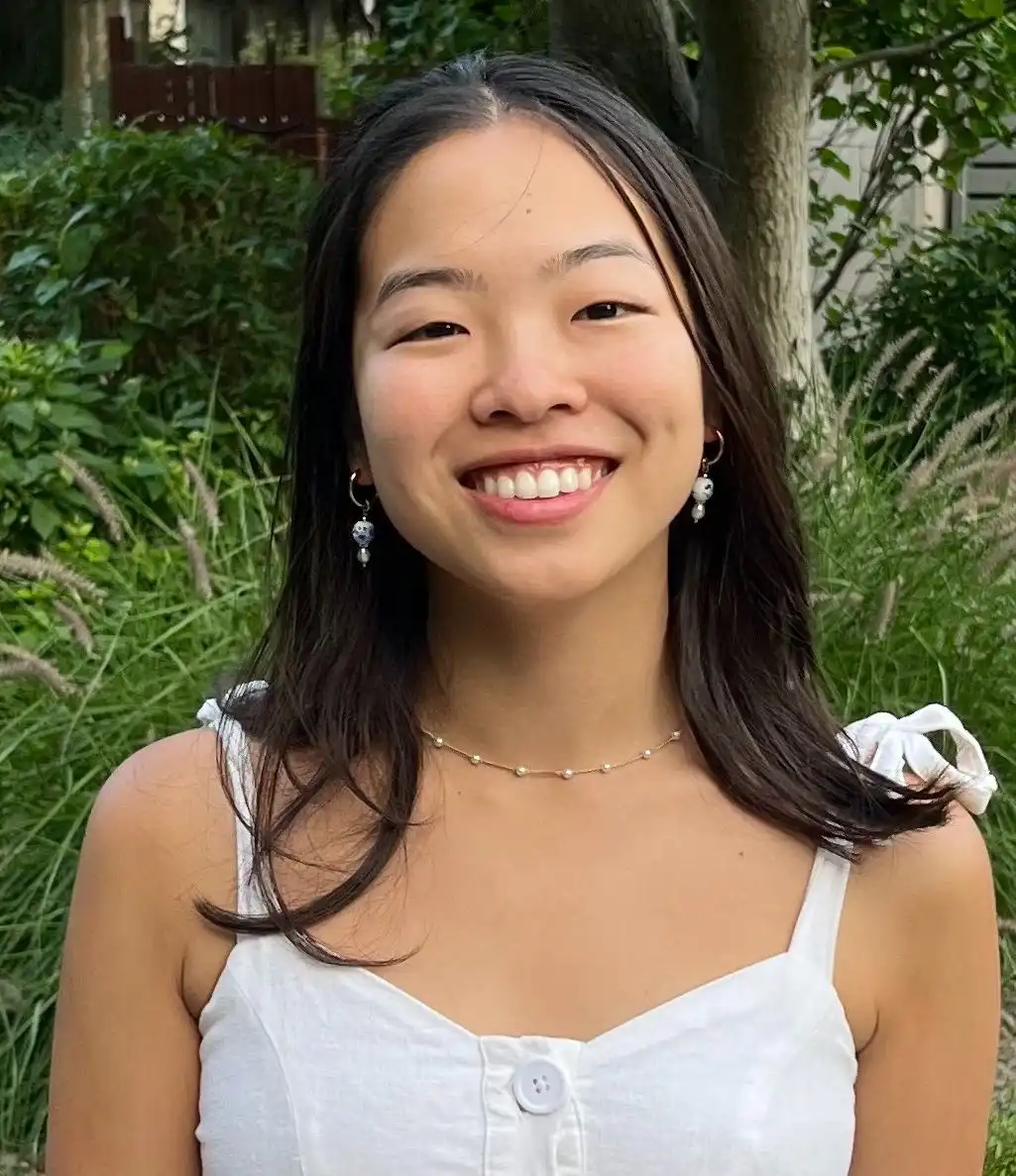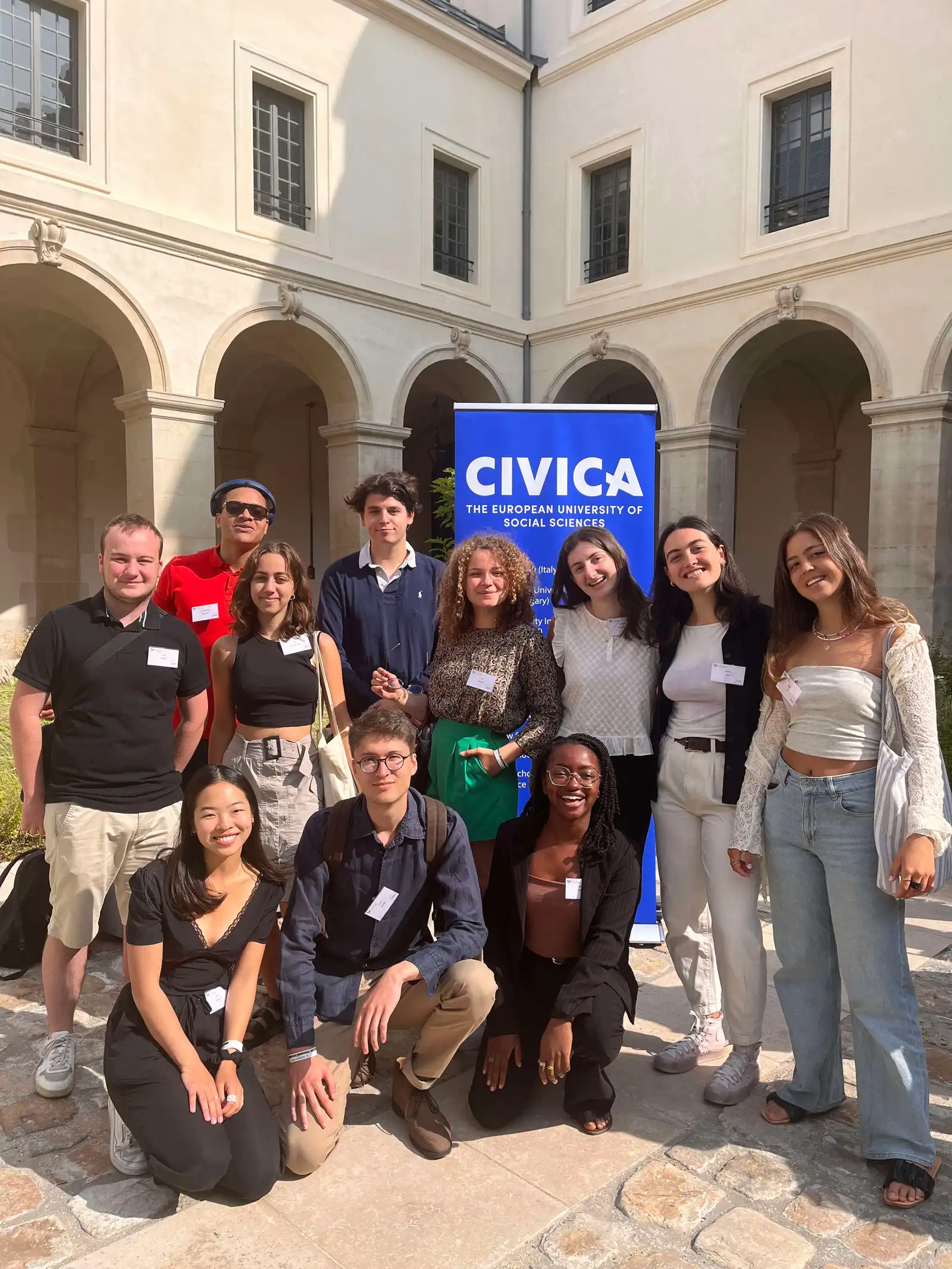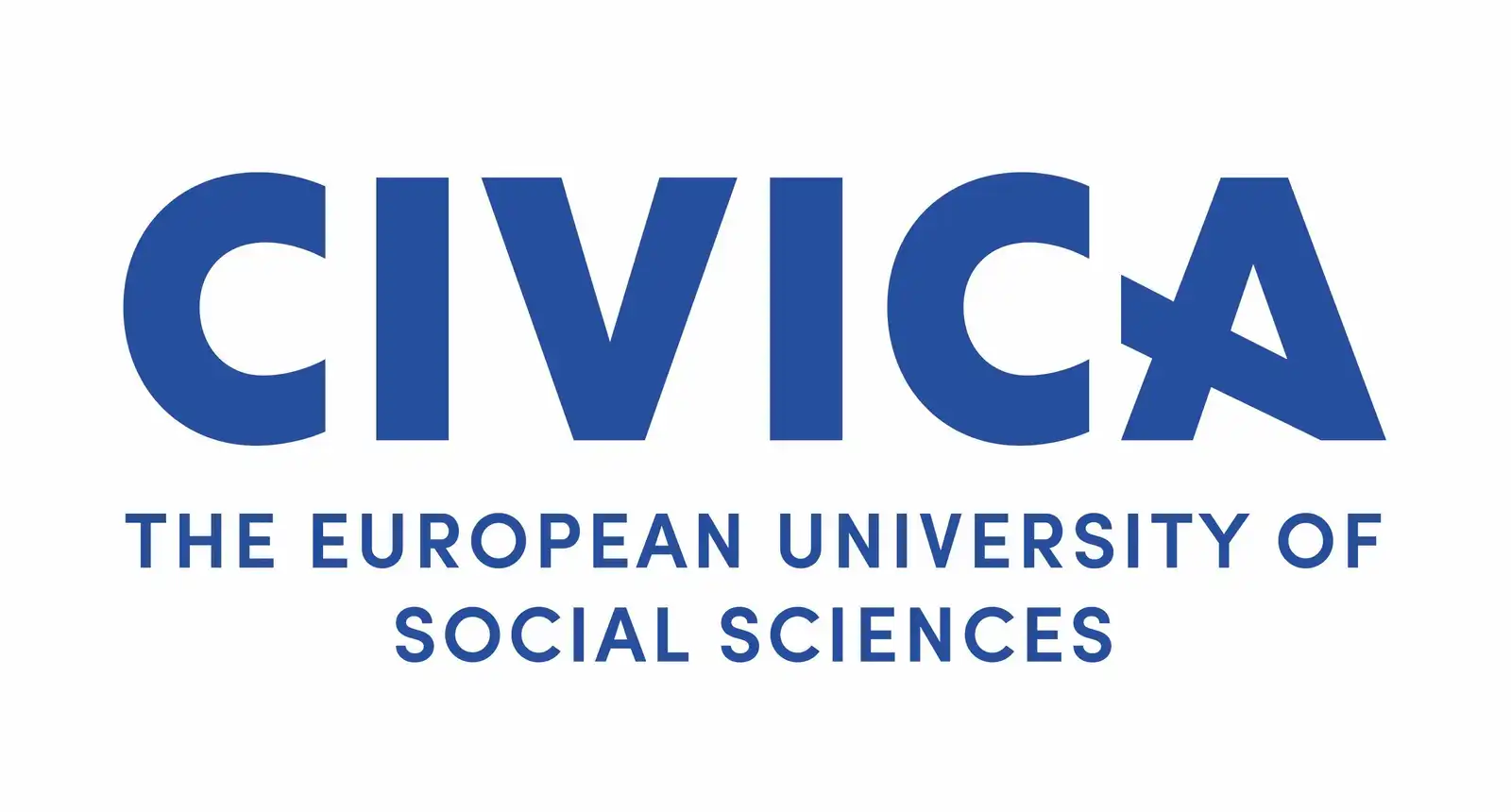Home>Cities & Ecological Transitions: 90 Students at CIVICA European Week 2023

10.07.2023
Cities & Ecological Transitions: 90 Students at CIVICA European Week 2023
As part of CIVICA, the European university of social sciences, Sciences Po had the honour to host this year's CIVICA European Week.
80 undergraduates from 8 partner universities of CIVICA - Bocconi University, Central European University, IE University, National University of Political Studies and Public Administration, Sciences Po, SGH Warsaw School of Economics, Stockholm School of Economics, and The London School of Economics and Political Science - were welcomed on the Paris campus from 27 to 30 June to gather around the topic of “Ecological Transitions: Cities on the frontline”. The European Week is part of the CIVICA Engage Track programme aimed at bachelor’s students. 10 Ukrainian bachelor students, thanks to the CIVICA for Ukraine project, 10 high school students, 10 expert lecturers and 10 tutors from the participating universities were also part of the journey.
Marco Cremaschi, academic director of the event, and of the Urban Planning Master Programme at Sciences Po's Urban School, explains his academic inspiration:
"Sciences Po’s Undergraduate College, in close collaboration with the International Affairs Division, the Department for Studies and Partnerships, and the Urban School, structured the academic agenda for European Week 2023 around the notion of CIVICA - from which the European alliance takes its name.
Etymologically, the concept refers to the Latin term "civitas", understood here as the political and civic community. Historically, this notion was opposed to that of "urbs", referring to the process of urbanisation. This event enabled bachelor students to closely observe these two dimensions of the city and the respective contemporary transformations taking place under the injunction of ecological transitions.
Thanks to an experiential training programme combining seminars, off-site visits to urban worksites and museum spaces, and dialogues with political decision-makers, they were able to "listen with their eyes", as the French writer and critic Paul Claudel put it. They have learned to scrutinise the "urbs" in order to understand the "civitas" by analysing the conduct of urban public policies from the inside. In so doing, they have interpreted the grammar of the city, listening to the multitude of languages that make it up, and deepening the conditions for citizen dialogue between the actors of the contemporary city."
CIVICA European Week 2023: Student story by Moyu
Moyu Shimada is a dual degree student of Sciences Po Undergraduate College and Keio University, studying economics. She is studying on Le Havre campus, Asia-Pacific Minor, and was selected to be one of the ten Sciences Po's representatives to attend the CIVICA European Week 2023. She agreed to share her experience of engaging in urban ecology during this week in Paris with her peers from other CIVICA partner universities while familiarising herself with various pathways to urban sustainability through comprehensive learning approaches.
Day 1: Introduction to urban ecology
The programme began with a series of lectures introducing different aspects of global sustainability, notably climate negotiation and global migration. These lectures gave us an overview of the impact of climate change and how the world is currently adapting to it. In addition, we discussed ethnography in our methodological seminar: what it is, how to conduct research using it, and how to present the qualitative findings. It introduced us to a unique method of observing a city in a way that fill in the incalculable local context that is often overlooked in quantitative observations. Hearing about the professor’s personal experience in conducting ethnographic research provided us with a perspective on how to most accurately capture the cultural dynamics of the communities and reflect the voices of the residents in the planning process. I appreciated the fact that the first day focused on looking at urban ecology through a macro lens, encapsulating a general synopsis of different aspects within the field.
In the afternoon, we gathered with our tutor group to prepare for the upcoming field visit of the assigned ecological project in Paris. Given that our task was to write a blogpost on this site by the end of the week, we needed to come up with a structure to know what information to seek. Bearing in mind the knowledge we obtained about ethnography, we discussed what to look for in the site, what questions to ask, and our overall strategies as a group to understand the function of the site most precisely. In the opening speech of the European Week, Mathias Vicherat, the President of Sciences Po, emphasised the importance of the intra European collaboration that CIVICA facilitates in creating cohesive urban changes across Europe. This aspect of cooperating with students from other European universities was one of the primary motivations for my participation in this event, and I was happy that the tutor group activity they designed reflected this value and fostered opportunities for me to engage with and learn from other students from different backgrounds.
Day 2: Delving into urban initiative
On our second day, we had an off-campus visit to engage with urbanism projects in Paris. My tutor group headed to our assigned site, Halage Lil’Ô, which is a multi-environmental project located in the Saint-Denis region of Grand Paris that aims to transform a former industrial wasteland into a hub focused on biodiversity, social justice, and innovation. All of their ongoing projects, such as repurposing organic waste into compost or innovating soil blends that rehabilitate polluted soil, are done by worker seekers, providing them an opportunity to hone concrete skill sets to enter the workforce moving forward. We learned that Lil'Ô puts social cohesion at the heart of their ecological processes. This initiative highlighted that by embracing sustainable practices that engage with local communities, we can create cities that are not only environmentally friendly but also socially and economically vibrant. This firsthand contact gave us a closer look into how local ecological practices take place in big cities.
This off-campus visit in Saint-Denis was further complemented by a conference with the mayor of Saint-Denis, Mathieu Hanotin. He discussed with us many of their regional aspirations, as well as their ongoing projects to uplift the community, such as the construction of the Olympic and Paralympic Village. Not only were we able to hear from him, but we also had the chance to ask questions and address how these initiatives negatively impact the local population with issues such as gentrification and displacement. I appreciated this opportunity to have a candid dialogue with the local authorities and learn about how they attempt to balance the diverging interests of the different parties involved.
The combination of the off-campus visits and the conference allowed us to closely interact with various stakeholders in the area and shed light on the importance of collaboration among these parties in creating positive urban changes. Overall, this holistic, immersive experience gave me a glimpse of what the professional settings in sustainable urban planning look like, which I found helpful as an individual wanting to pursue this career in the future.
Day 3: Taking a closer look
This day started off with a conference led by Marion Waller, the Director of Pavillon de l’Arsenal on how the city of Paris is adapting to climate change. Personally, this was by far the most fascinating course we have had throughout the European Week, as we delved deeper into specific examples of initiatives that I could recognise through my own experience of walking around Paris. The Director discussed multitudes of urban projects, such as the Seine river bank’s transformation into a cycling and pedestrian-friendly zone in 2016 and the ongoing construction of Grand Paris Express hoping to increase suburbs connectivity for urban sprawl mitigation. It was intriguing to be able to articulate concrete steps of the ecological evolution, as well as to discuss how the current urban infrastructures in Paris can be reimagined in the coming years. I enjoyed how this conference focused more on the sustainable efforts that are applicable to real planning rather than the abstract urban aspirations that simply remain on theoretical grounds.
In the afternoon, each tutor group came together to work on the blogpost, analysing the efficacy of the assigned urban project and how they fit under the ecological agenda of the city of Paris. Producing a body of work as a team required us to share our personal observations and polish the collective understanding of the site, taking the exercise of critical analysis onto a whole new level. These discussions in the small group setting brought our tutor group closer together, and I felt more integrated into the CIVICA community.
Day 4: Student discussion
The final day was dedicated to the presentation and discussion on the sustainable urban projects each group studied. The student presentations introduced us to an array of initiatives taken around Saint-Denis and allowed us to exchange varying interpretations of these projects. It was helpful to learn about initiatives that our group did not get to study. The presentations provided a general overview of what the urban ecology scene looks like in Paris, and the discussions helped us deliberate what trajectories we can expect for the city in the near future.
Closing thoughts
Overall, I found the European Week to be an enriching experience that armed me with valuable tools that can enhance my academic and professional journey moving forward. Personally, the insights gained from the programme went beyond the practical knowledge on urban ecology, and I particularly valued the exposure to the professional scenes in the field since this broadened my understanding of the industry and provided me with a clearer vision of my potential career paths. This was unique to the European Week, as such close interactions with the involved actors are not a readily accessible learning approach.
I am also appreciative of the network I gained throughout the programme of students with similar interests from all across Europe. Through this intensive week, I cultivated a few intimate friendships that extend beyond the bounds of the programme, and I am happy to have developed such connections with people that I would not have otherwise met. I am grateful that I was able to take part in these rare immersive learnings, and I look forward to applying the experiences gained to my future endeavors in the realm of sustainable urban planning.
Stay tuned, subscribe to CIVICA newsletter.
MORE INFORMATION:
- Sciences Po's Urban School
- The Urban Planning Master Programme
- Sciences Po's Undergraduate College
- Bachelor Dual Degrees
- Le Havre campus, Asia-Pacific Minor
- CIVICA European Week
- CIVICA for Ukraine






